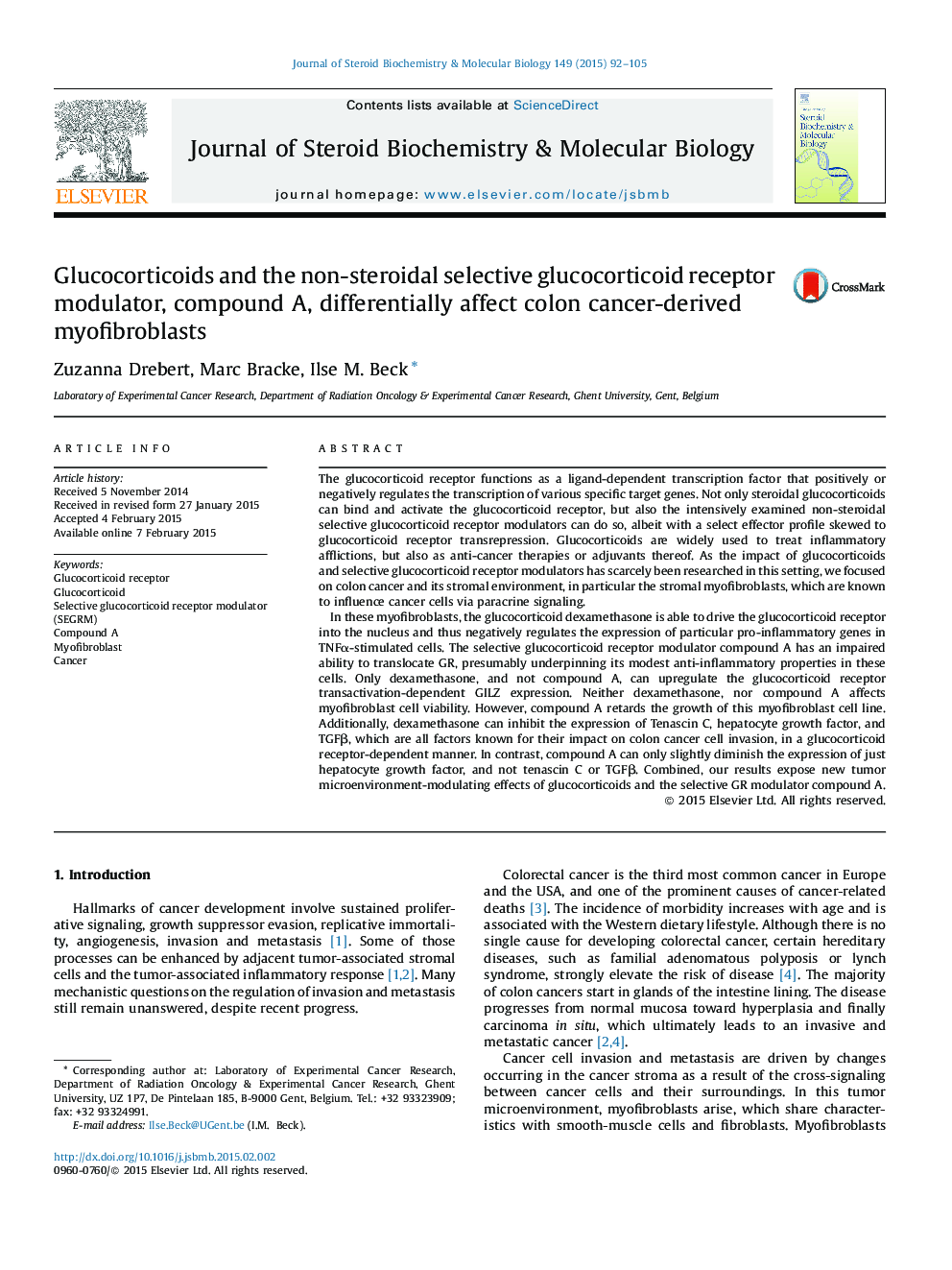| کد مقاله | کد نشریه | سال انتشار | مقاله انگلیسی | نسخه تمام متن |
|---|---|---|---|---|
| 1991524 | 1541000 | 2015 | 14 صفحه PDF | دانلود رایگان |

• Glucocorticoid receptor (GR) modulation influences myofibroblast biology.
• Glucocorticoids diminish expression of several factors involved in cancer invasion.
• Selective GR modulator CpdA retards growth of colon cancer-derived myofibroblasts.
• CpdA does not or weakly diminish the expression of these invasion-related factors.
• CpdA has an impaired ability to translocate GR to the nucleus in myofibroblasts.
The glucocorticoid receptor functions as a ligand-dependent transcription factor that positively or negatively regulates the transcription of various specific target genes. Not only steroidal glucocorticoids can bind and activate the glucocorticoid receptor, but also the intensively examined non-steroidal selective glucocorticoid receptor modulators can do so, albeit with a select effector profile skewed to glucocorticoid receptor transrepression. Glucocorticoids are widely used to treat inflammatory afflictions, but also as anti-cancer therapies or adjuvants thereof. As the impact of glucocorticoids and selective glucocorticoid receptor modulators has scarcely been researched in this setting, we focused on colon cancer and its stromal environment, in particular the stromal myofibroblasts, which are known to influence cancer cells via paracrine signaling.In these myofibroblasts, the glucocorticoid dexamethasone is able to drive the glucocorticoid receptor into the nucleus and thus negatively regulates the expression of particular pro-inflammatory genes in TNFα-stimulated cells. The selective glucocorticoid receptor modulator compound A has an impaired ability to translocate GR, presumably underpinning its modest anti-inflammatory properties in these cells. Only dexamethasone, and not compound A, can upregulate the glucocorticoid receptor transactivation-dependent GILZ expression. Neither dexamethasone, nor compound A affects myofibroblast cell viability. However, compound A retards the growth of this myofibroblast cell line. Additionally, dexamethasone can inhibit the expression of Tenascin C, hepatocyte growth factor, and TGFβ, which are all factors known for their impact on colon cancer cell invasion, in a glucocorticoid receptor-dependent manner. In contrast, compound A can only slightly diminish the expression of just hepatocyte growth factor, and not tenascin C or TGFβ. Combined, our results expose new tumor microenvironment-modulating effects of glucocorticoids and the selective GR modulator compound A.
Journal: The Journal of Steroid Biochemistry and Molecular Biology - Volume 149, May 2015, Pages 92–105